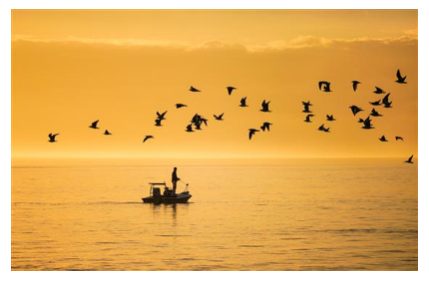Performing Cancer Cultures: Activating Healthcare and Environmental Justice
PERFORMING CANCER CULTURES: ACTIVATING HEALTHCARE AND ENVIRONMENTAL JUSTICE (PDF)
© Marie Alisa Garlock 2019
Doctoral Committee — Della Pollock, Chair (Performance and Cultural Studies, Oral History), Renée Alexander Craft (Critical Performance Ethnography), Sarah Dempsey (Critical Organizational Communication), Kumarini Silva (Gender and Cultural Studies), Joan R. Cates (Interdisciplinary Health Communication), Eunice Sahle (African, African American, and Diaspora Studies, Political Economy), Barry F. Saunders (Clinical and Social Medicine, Science,Technology, Society)
Listening + Musing
soundtrack of music + recordings to accompany each chapter as you peruse
Contents
© 2019 — Marie Alisa Garlock — ALL RIGHTS RESERVED
Abstract iii
“Performing Cancer Cultures: Activating Healthcare and Environmental Justice addresses the possibilities for performance to intervene in U.S cancer cultures in three primary ways. First: as renewed, reiterated rituals performed in the NC Moral Mondays and HKonJ coalition movement for, among other things, Medicaid expansion, coal ash clean up, and a fracking ban. Second: in oral histories told and testimonies given in and beyond U.S. Commission on Civil Rights hearings on coal ash waste, part of ethnographic research and action-affiliations in Walnut Cove, an environmental health sacrifice zone in Stokes County, NC. Third: in the open format, stage performance of Flipping Cancer that I have offered in multiple sites 2014-19, developed from ongoing, clinician-, caregiver-, and patient-tailored InterPlay workshops and interviews centering stage IV disease. I argue that the embodied performance of story by persons living/dying with advanced cancers in both fossil fuel and healthcare worlds importantly challenges the particularly vigorous claims U.S. cancer cultures make on raced and gendered bodies, leading to the “redemptive-prophetic” stance I pursue in my current work. In body dispatches, spatial reclamation practices, and testimonial witness, I explore the multi-layered inequities that spark creation amidst cultural and policy contradictions, as underrepresented community members mobilize change.”
Dedicated to Barbara Marie Bosma Garlock, JD and Dr. Charles “Baba Chuck” Davis iv
Acknowledgements v
INTRODUCTION: WHY CANCER STORIES MATTER 1
What Do Cancer Stories Do? 3
Cancer Cultures 10
Why Health Justice? 13
Interpellation and Imperatives 20
Pink Gala Lady 24
Survivors Only Logic 41
Investment Paradigms 45
Banal Abstraction Logic 53
Performance Vocabularies 55
Chapter Previews 62
CHAPTER 2: TACTICAL MOVEMENTS FOR HEALTH JUSTICE 67
Processional and Funerary Rites in the General Assembly 68
Movement Context 76
Life Cycle Ritual 84
Lay Down to Rise Up and Fusion Movements 95
HIV/AIDS and Breast Cancer Movements 99
Intergenerational Rites in a Fracking Sing In and Walk Out 114
The Power of Processional: “We do have rights—and you know we're coming” 123
Reflexive Witness with Shuntailya Imani 126
Conclusion 137
CHAPTER 3: NARRATING CHANGE FROM SACRIFICE ZONES 141
Sacrifice Zones: No Regulations Required 142
Delineating Sacrifice Zones 143
The Challenge of the United States Commission on Civil Rights Hearing 148
Setting Priorities: James and Priscilla 152
Civil Rights and Health Rights 167
Corporate Philanthropy In the Ash Heap 170
Danielle and The Impossibility of Cancer Clusters 182
On Mothering—Tracey 192
Conclusion 207
CHAPTER 4: STAGE IV BODY DISPATCHES 211
Dispatches 212
Survivorship 218
Advanced Cancer Clarities 230
Danielle Wonders About Expertise 233
Barbara, Center Stage 242
Body as strategic system 245
Metastatic Breast Cancer Network — Winning / Dying 252
Behind the Curtain 256
Emergent Narratives and Body Matrices 269
Conclusion 281
CONCLUSION: COURAGEOUS COMMUNITIES 282
Transformative Justice 283
Directions for Further Research 287
Performance Iterations 295
Appendix A: Flipping Cancer 299
Flipping Cancer—full script (c) 2019 pdf for committee (do not circulate)
Audience responses—scanned selection
Appendix B: USCCR Report and Transcript Selections 383
Transcript U.S. Commission on Civil Rights, NC Coal Ash Hearing—selections
Federal Report to U.S. Congress and President Obama—selections
ACT—participant/organizer planning and community principles
Appendix C: InterPlay Methods in Research 403
Example Curricula and Participant Evaluations
Flipping Cancer Workshops
Environmental Justice Workshops
Appendix D: People’s Agenda 423
Healthcare and Environmental Justice Moral Mondays
14 Point People’s Agenda—HKonJ Coalition
14 Steps for Forward Together—Poor People's Campaign, SNCC, Fusion legacies
Appendix E: Patient Partnerships for Activation 438
Center for Patient Partnerships Vision
Democratizing Palliative and Supportive Care Resources
NCHR and Breast Cancer Action Support Materials
Appendix F: The Lilies Project 459
Celebrating Courage + Dan River Blessing
DEQ Epiphany + Excavation Celebration
Future Projects—Encapsulating Ash, Prayer Labyrinths, and Solar Farm
References 475
Doctoral Defense: August 19, 2019, 12:30 pm, Anne Queen Faculty Commons, Campus Y
Photo by Steve Browne, member of a Cancer Support Group focused on stress management/meditation skills. Racially-, gender-, and economically-diverse members were ages 26-76, with various types of cancers, though most presented with stage III or IV disease. Patients and family/friend caregivers—spouses, parents, adult children—joined this group founded and run by Harding Birkhead, Oncology RN, MDiv, through a clinical consortium in central NC.
